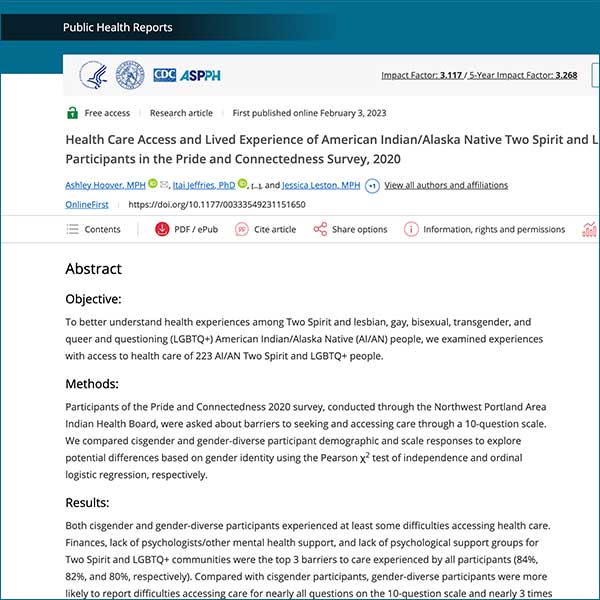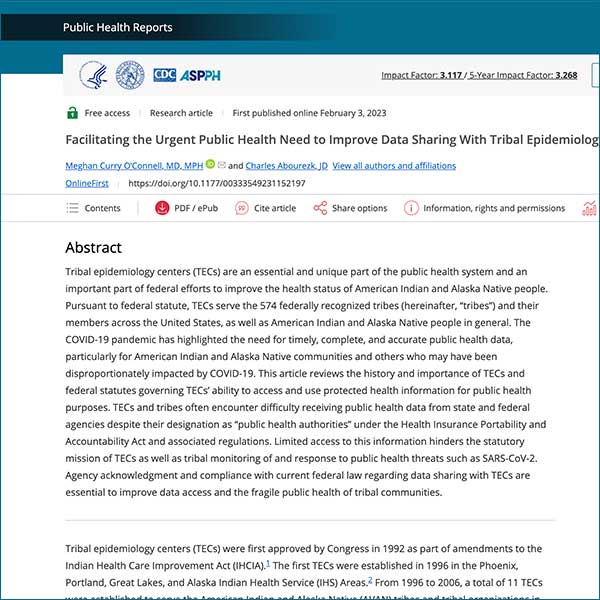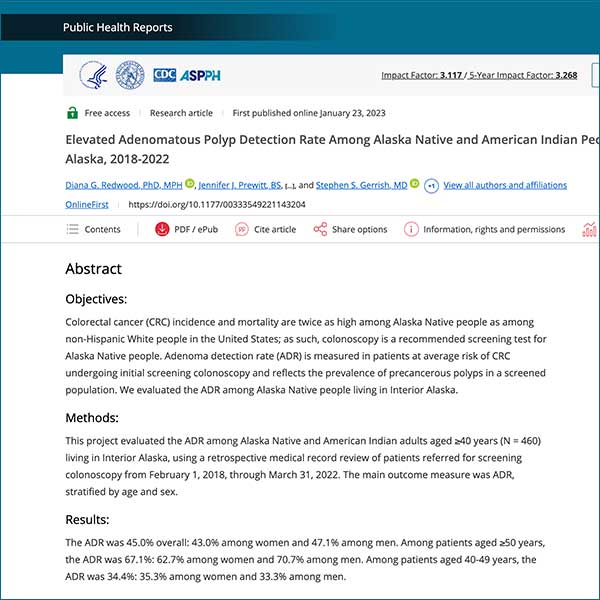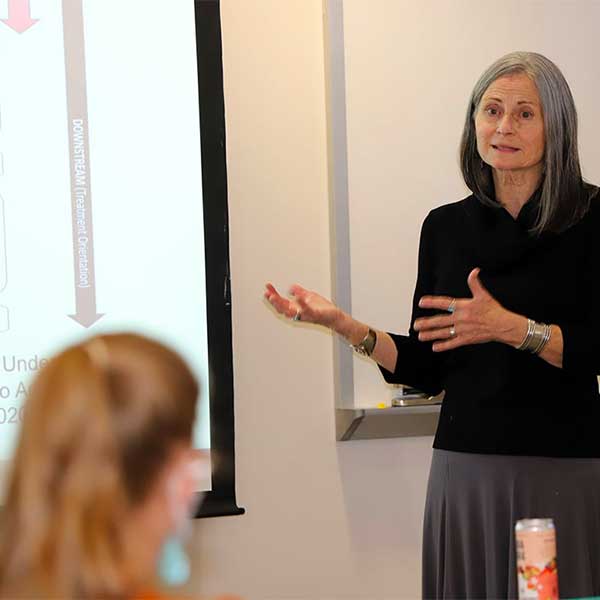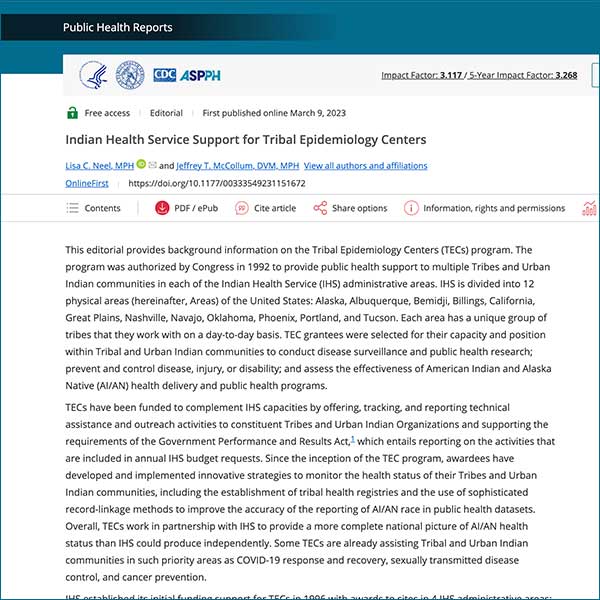
Sage Journals
This editorial provides background information on the Tribal Epidemiology Centers (TECs) program. The program was authorized by Congress in 1992 to provide public health support to multiple Tribes and Urban Indian communities in each of the Indian Health Service (IHS) administrative areas.
Lisa C. Neel, MPH and Jeffrey T. McCollum, DVM, MPH
March 9, 2023

